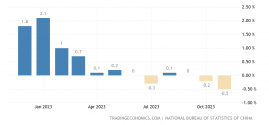What I'm saying is this: Western countries have experienced the problems that China has experienced in the past, but they have reached the status of a developed country without decreasing their population. In order to become a developed country, it's not about reducing the population, it's about giving importance to technology and spreading it to the base. China has the resources and productivity to do this with the current population as well.
As I understand it, you are arguing that the population will eventually fall into balance and should not be interfered with. What if it doesn't happen? Can you guarantee that? What if the one-child policy has upset the balance. What if this low trend of marriage and childbearing in society continues. With the low youth population rate that will occur in the future, it will be very difficult to keep even the balance, let alone increase the population. Therefore, the most logical way is for the government to try to increase marriage and birth rates as soon as possible.
Okay, you and Manqiangrexue have both said your parts enough.
This is getting tiresome, knock it off. As you are the newer member on the forum and the instigator, I expect you to stop this nonsense.
Further posts will be deleted.

